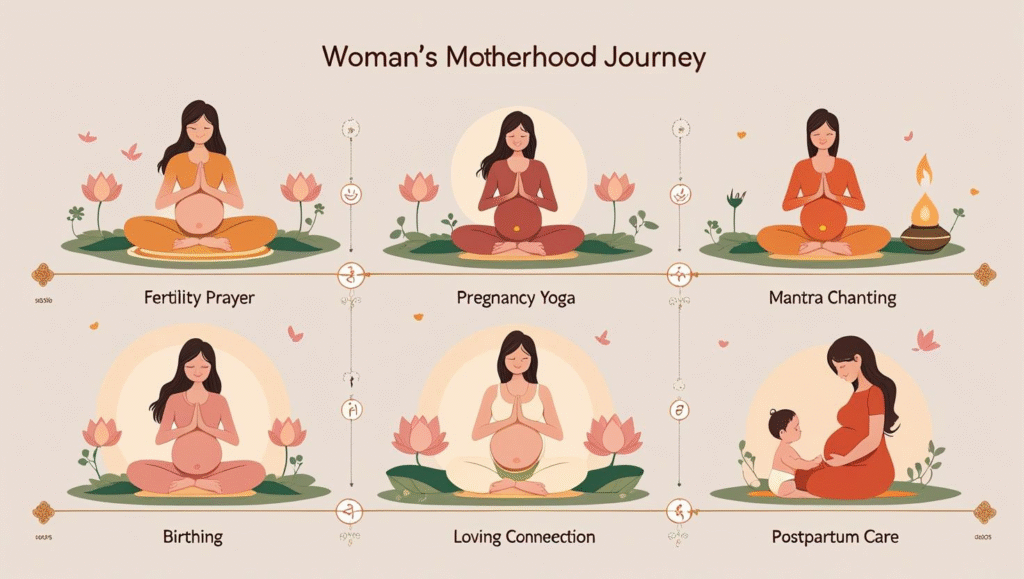
Introduction
Motherhood is not just about delivering a child—it’s a complete physical, emotional, and spiritual transformation. In Ayurveda, this sacred journey is not divided into isolated events like conception, pregnancy, and postpartum. Instead, it’s seen as a holistic continuum where each phase builds the foundation for the next.
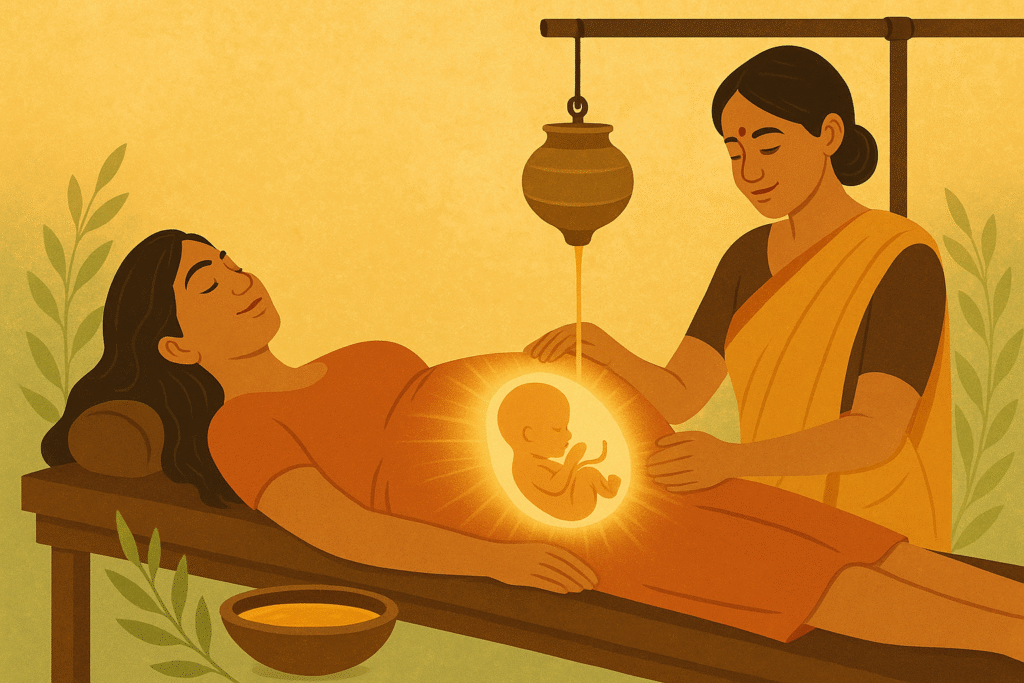
At Janani Garbh Sanskar, we guide women across every phase—from fertility enhancement to a safe delivery and balanced postpartum care. Rooted in Garbh Sanskar traditions and modern wellness needs, our program blends ancient Ayurvedic principles with scientifically backed methods.
Phase 1: Preparing the Body and Mind for Conception
Ayurveda emphasizes preconception purification (Beej Shuddhi) and preparation (Garbhadhana Samskara) to ensure the health of the ovum and sperm, and the mental readiness of the parents.
Key Practices:
- Panchakarma detox to cleanse reproductive channels
- Rasayana therapy with herbs like Ashwagandha, Shatavari, and Amalaki
- Sattvic diet for hormone balance
- Mindful rituals like meditation and mantra chanting to create mental harmony
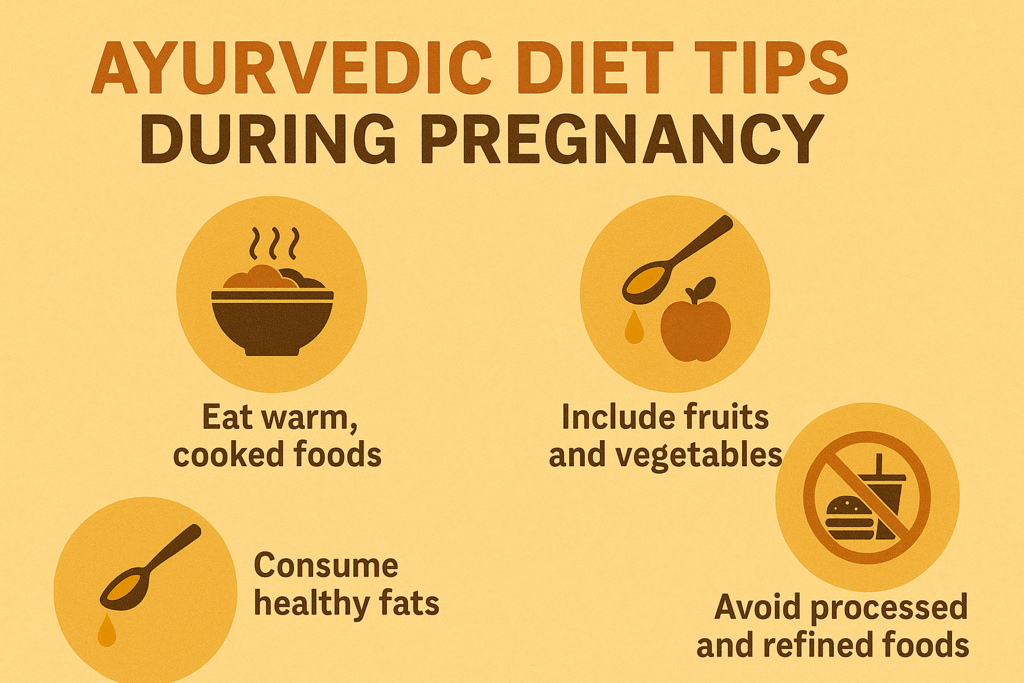
Why it matters: A clean and balanced system leads to improved fertility, regular ovulation, higher sperm quality, and most importantly, a strong spiritual connection between partners.
Phase 2: First Trimester – The Foundation of Life
During the first trimester, Ayurveda recommends focusing on emotional stability and subtle nourishment.
Guidelines:
- Light and easy-to-digest foods (rice, milk, ghee, moong dal)
- Avoiding pungent, overly spicy, or fermented items
- Daily prayers or mantras (e.g., Om, Garbh Raksha Mantra)
- Gentle walks and rest to allow implantation and fetal fixation
Emotionally, the mother’s thoughts begin shaping the baby’s nature. Hence, Garbh Sanskar practices like mantra listening and positive visualization are crucial.

👉 Also Read: How Music, Mantras & Meditation Shape the Baby’s Mind in the Womb
Phase 3: Second Trimester – Physical & Cognitive Growth
This is when fetal organs and the nervous system mature. Ayurveda prescribes nourishing foods and mental stimulation during this period.
Ayurvedic Support:
- Herbs like Shatavari and Yashtimadhu to support uterine health
- Daily intake of ghee and milk infused with saffron for skin and brain development
- Listening to classical Ragas like Yaman and Bhairavi
- Practicing Garbh Samvaad (talking to the baby)
Garbh Sanskar yoga can also be initiated here, under expert supervision. It enhances blood circulation and improves posture.
Phase 4: Third Trimester – Preparation for Delivery
Now is the time to prepare physically for labor and mentally for motherhood.
Key Ayurvedic Recommendations:
- Medicated ghee and oils to lubricate internal tissues
- Abhyanga (oil massage) to relieve back pain and nourish the skin
- Basti therapy in the 9th month for smoother labor (as practiced at Janani Garbh Sanskar)
- Guided meditation and breathing techniques to manage labor anxiety
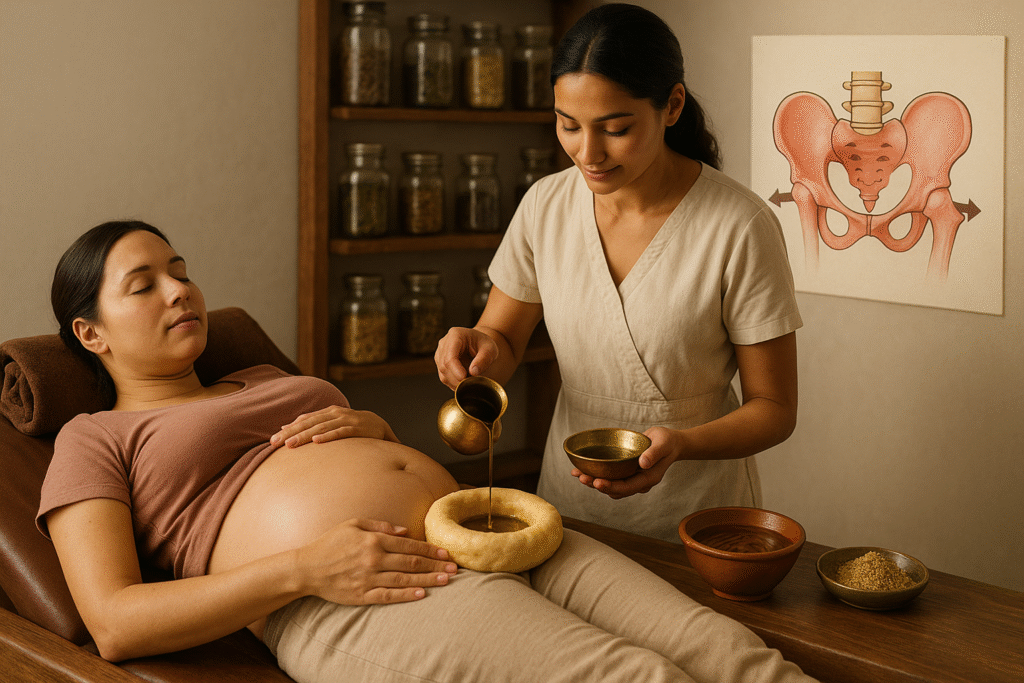
👉 Deep Dive: Garbh Sanskar: The Complete Guide to Nurturing Your Baby in the Womb
Phase 5: Sukh Prasuti – Joyful & Safe Childbirth
Sukh Prasuti, or a peaceful delivery, is the aim of all Ayurvedic prenatal care. By preparing the body, mind, and womb through diet, yoga, basti, and mantra sadhna, mothers can experience a smoother birthing process.
Benefits observed among our patients:
- Reduced need for medical interventions
- Shorter labor durations
- Less postpartum fatigue
Phase 6: Ayurvedic Postpartum (Sutika Kala)
This is a critical recovery window of 42 days post-delivery.
Postpartum Routine:
- Belly massage and warm oiling for uterine recovery
- Ayurvedic decoctions like Dashamoolarishta to regain strength
- Light satvik diet including ghee, moong dal khichdi, and herbal teas
- Mental peace through mantra chanting and community bonding
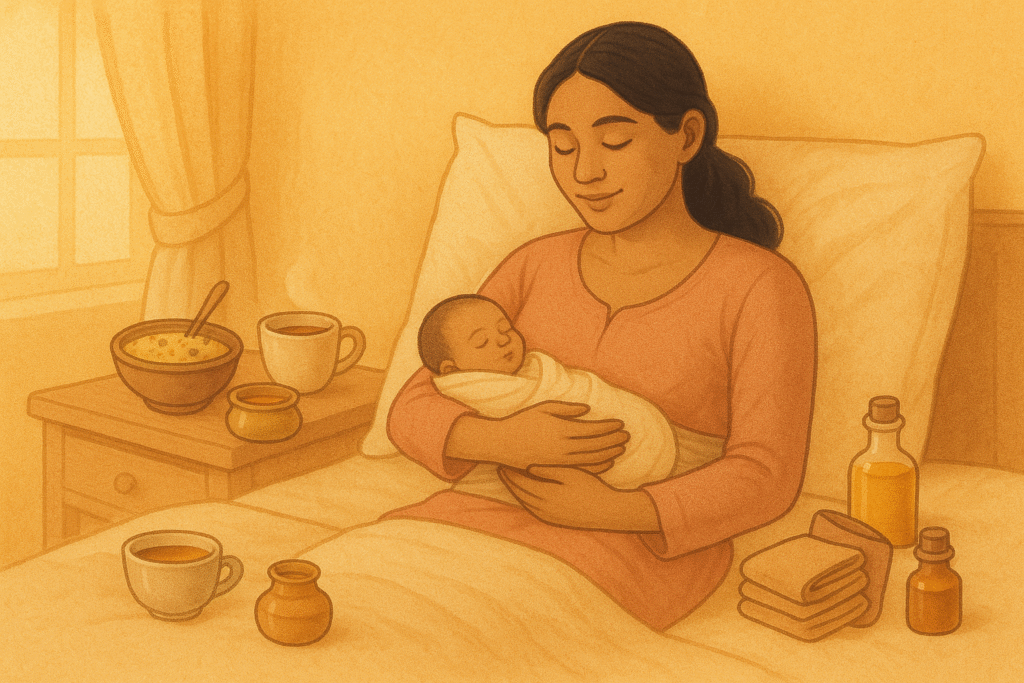
We also host special postpartum support sessions for mothers at our Solapur center and online.
Internal Link Opportunities to Boost SEO:
Interlink with:
- 10 Benefits of Garbh Sanskar You Didn’t Know About
- Month-Wise Garbh Sanskar Routine: Masanumasik Guide
- How Garbh Sanskar Affects Baby’s Brain – Backed by Science
CTA Section:
Ready to walk your Ayurvedic motherhood journey?
Join our Garbh Sanskar workshops and personalized wellness programs online or in Solapur.
👉 Explore Programs
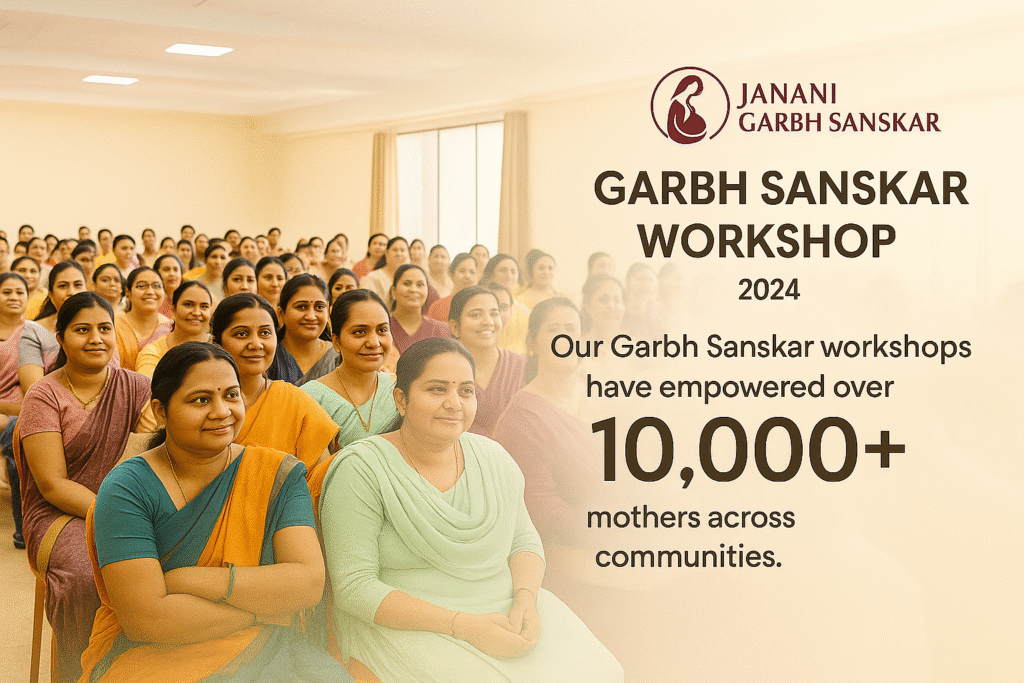
FAQs
Q: Can I follow Ayurvedic practices if I am under modern medical care too?
Yes. Ayurveda complements your medical protocol. Always consult both experts for synchronized care.
Q: When should I begin Garbh Sanskar?
Ideally 3 months before conception, but it’s never too late—even in the 3rd trimester or postpartum.
Q: Is Panchakarma safe for preconception?
Yes, but it should be customized and supervised by qualified Vaidyas.